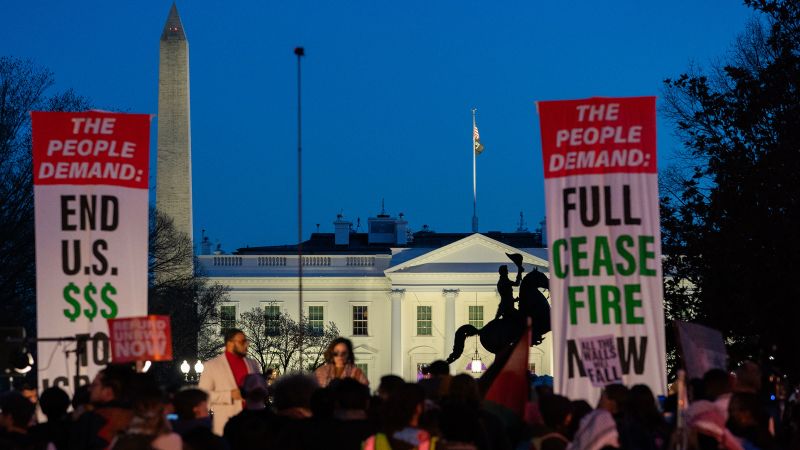The White House has decided to shift plans for President Joe Biden to host an iftar dinner with Muslim community leaders in light of the ongoing Israel-Hamas war. Instead of the dinner, Biden will hold a meeting with the group and only host a small dinner with senior Muslim administration officials. The decision to change the event came after significant pushback from expected attendees who felt it would be inappropriate to discuss the humanitarian crisis in Gaza over dinner, given the dire situation in the region where 23 children have died from starvation.
Participants in the event showed little interest in wanting to eat and celebrate, leading to the conclusion that it would be more fitting to hold a policy discussion instead. Several people who were invited to attend the iftar dinner chose to decline, expressing frustration with the administration’s support of Israel amid the crisis in Gaza. The sentiment among attendees was that it would be shameful to attend a celebratory meal while Palestinians are being killed and starved, highlighting the ongoing conflict and humanitarian issues in the region.
The scaled-back event is a departure from previous Ramadan observations during the Biden administration. While last year the White House did not hold an iftar dinner, it hosted a reception celebrating Eid al-Fitr with nearly 350 guests. This year, the iftar dinner will follow a meeting with Muslim community leaders and will include a small breaking of the fast, prayer, and iftar with senior Muslim administration officials. The decision to change the event format reflects the sensitivity of the ongoing conflict in Gaza and the concerns of the Muslim American community.
As the conflict between Israel and Hamas continues to escalate, with thousands of casualties and a growing humanitarian crisis in Gaza, Biden has called for an immediate ceasefire but has not taken steps towards a permanent resolution or halting arms provisions to Israel. White House officials have been meeting with prominent Arab American and Muslim leaders in various cities to address the concerns of the community. However, some invited participants have declined to attend these meetings due to the ongoing crisis in Gaza, reflecting the deep-rooted anger and concern within these communities.
The handling of the conflict in Gaza is also presenting political challenges for Biden, particularly in battleground states with significant Muslim American populations such as Michigan. In the state’s Democratic primary, more than 100,000 voters chose “uncommitted” to send a message to the president, indicating discontent with his approach to the conflict. Biden has faced interruptions from activists on the campaign trail, highlighting the growing frustration and pressure on the administration to take a more proactive stance on the crisis in Gaza and to address the concerns of the Arab, Palestinian, and Muslim American communities.


